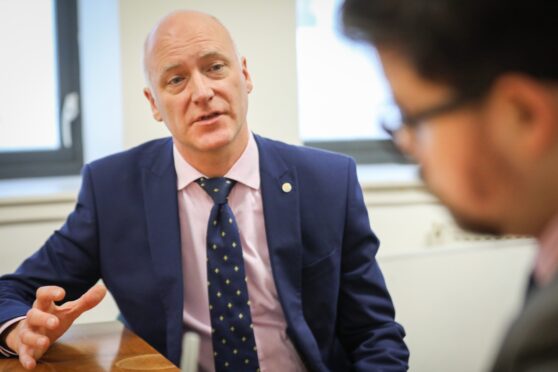The long-term benefits of City Deals like the one arranged for Dundee, Perth, Angus and Fife will be difficult to monitor, according to Audit Scotland.
In a report published on Thursday, Audit Scotland and the Accounts Commission say the £5.2 billion deals may have already missed opportunities they were intended to bring.
The funding for the Tay Cities Deal is expected to be fully signed off by the end of this month.
Auditor General Caroline Gardner warned a lack of aims and objectives for the programmes on the deal could make it difficult to measure success or failure.
Accounts Commission chairman Graham Sharp said: “City deals have had a positive effect across Scotland, strengthening relationships between councils, government, business, our universities and other partners.
“It’s early days but it’s important lines of accountability for deals are now made clearer and that the right staff are in place to develop and deliver deals at a time of considerable financial pressure for councils and the wider public sector.”
Ms Gardner said: “A significant amount of public money has been committed to city deals, but the programme’s lack of aims and objectives means opportunities may already have been missed to ensure deals contribute to national outcomes.
“The Scottish Government needs to show how it will measure deals’ long-term success and work with councils to improve transparency around the approval process for individual projects.”
Auditors recommend the Scottish Government devises measures to assess the long-term impact of city deals, including their value for money.
The Scottish Government accepted the findings of the report, pledging to reflect on them in conjunction with the UK Government and local authorities.
A spokesman said: “We welcome the report, which clearly highlights the positive effect that city region and growth deals are having across Scotland.
“Together with UK Government and our local government colleagues, we will reflect on these recommendations as we take forward existing and new deals to ensure the best possible outcomes for the people of Scotland.”
Holyrood audit committee convener and Dundee-based Labour MSP Jenny Marra said: “The positive potential offered by city deals by way of increased investment, collaboration between councils and their partners and overall economic development in Scotland is clear.
“This report, however, highlights concerns around how the Scottish Government intends to measure the initiative’s long-term success and its contribution to the National Performance Framework.
“The committee will, no doubt, also want to explore the transparency of project selection and funding decisions.”
The initial signing of the Tay Cities Deal in November 2018 saw more than £700m promised in investment.
Funding for 23 projects was unlocked as part of the “transformative” deal, with £150m from both the UK and Scottish governments to be delivered over the next decade-and-a-half.










